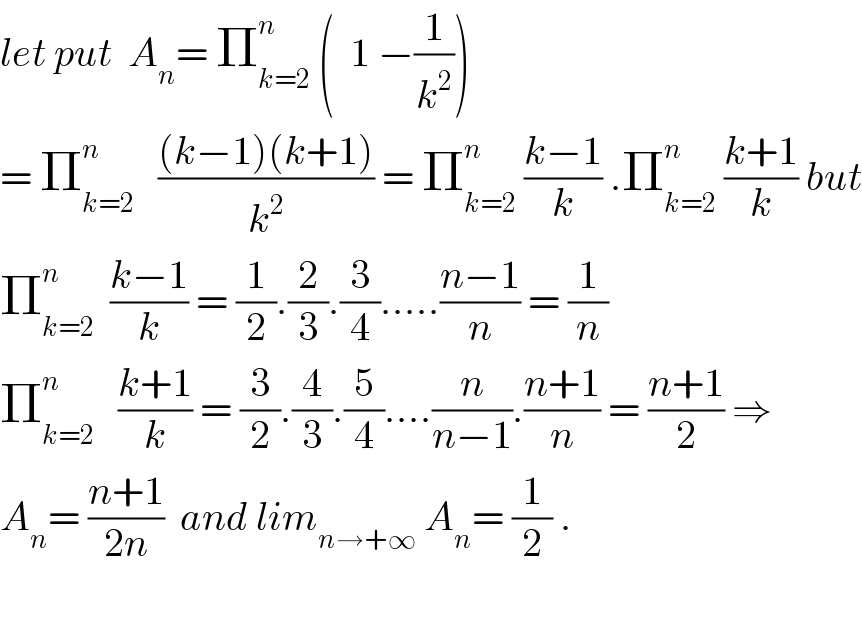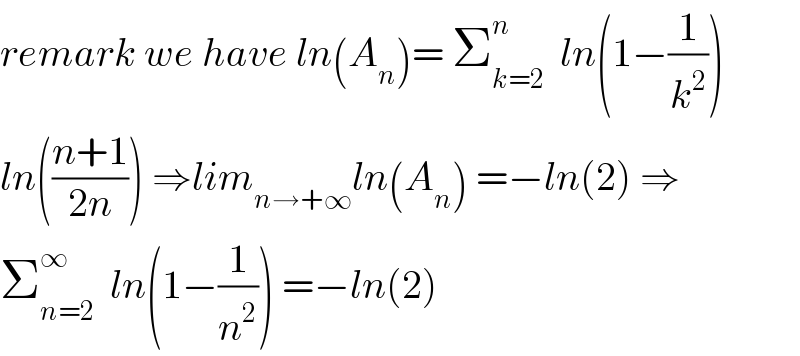
Question and Answers Forum
Question Number 36163 by bshahid010@gmail.com last updated on 29/May/18

Commented by abdo mathsup 649 cc last updated on 29/May/18

Commented by abdo mathsup 649 cc last updated on 29/May/18

Commented by bshahid010@gmail.com last updated on 30/May/18
thanks
